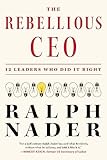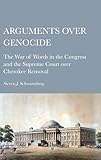A fellow expatriate told me recently when I left Belize, Central America, which I now consider my home: “America is a sticky place, Joe, hard to get out again, even from a short visit. The everyday money and business stuff alone will trap you like fucking flypaper.” And that keeps ringing in my head during this current return to sell my house and fulfill my promotional obligations for the book I just published here. Which could take months.
But it’s sticky in other ways too, some of them rooted in the hearts of its working class people. Last week I found myself in Philadelphia, a working class town if ever there was one. In this sprawl-and-mall age, it’s surprising for non-metro people like me to run into whole neighborhoods of folks who are not full of suburban, self-important horseshit and three-car garages, and when you do they always seem to be immigrant or working class neighborhoods. But then, maybe I was just around too many bland American “sluburbs” for too long before I skipped the country.
Old men see a lot of phantoms when they revisit the scenes of their youth. Philly is like that for me. I was stationed at the now defunct South Philly Naval Base in 1965. And it was in roaming that city during off-duty hours that I experienced my first intellectual awakening, or at least the first one that had other human participants. I hung out at places like the Artist’s Hut or the Guilded Cage off Rittenhouse Square, learned of the folk music and peace protest movements and heard poetry read live by real poets for the fist time. The people introducing me to those things had a strange similarity, one I couldn’t quite put my finger on. So one night during a very stoned conversation with Rachel, my newly acquired girlfriend, I asked just what the hell that similarity our circle of friends had was. “We’re all Jewish, silly!,” she replied. Until then, I’d thought Jews were some extinct people from the Bible. And so an intellectual life and scene was opened up for a country boy who was used to reading and thinking alone in a musty small town library, wondering if people like Marcuse and Genet were for real. But in 1965 America still offered my generation a world full of promise and growth. We drank cheap Chianti by candlelight, then stuck candles in the empty bottles and talked of Bertrand Russell and world peace and played Odetta and Charlie Parker records. And I got my first blowjob. Not in her student artist’s apartment, but under an alcove of Penn Center on a warm night in June. There was no telling just what might happen, even to a fundamentalist Christian raised redneck kid in 1965, in a sensual world so full of art, belief and promise.
Anyway, it is early April 2007 in Philly and I am copping a smoke in Philly’s Italian Market with 66-year-old Fredo “Freddy” Vento. Freddy, like about half the older men folk of the Italian Market, resembles Danny Aiello, but in work clothes. A butcher, Freddy sells everything from veal to “turkey parts” and whole skinned goats with the eyeballs still in the sockets. “The Latins like it that way and the tourists always stop to stare at ’em,” he laughs as he spits the stub of his filterless Camel onto the sidewalk. We are talking about the fight game because in places like Philly and Kansas City you can still do that with no PC police to jump your ass. Philly is a real fight town. I’ve always liked boxing (though I watch the Latin American lightweights these days on Belizean TV, fighters with real moves, combinations and artfulness, none of the heavyweight tanks crashing together stuff) partly because I learned to like it from my dad, partly because it was the only athletic thing in the U.S. Navy I seemed to be good at — I’d watched a lot of combinations, footwork and moves with my dad, and practiced in the coal shed behind our rented dump in Winchester, Virginia. But also because it distills the most primal human struggle, skill under pressure, and sheer graveyard will. Boxing is life in the raw, and yeah, yeah, I know it causes brain damage. But so does nearly everything else I’ve enjoyed in my life, drugs being one, but divorce being the worst.
It’s never a good idea for a writer or reporter to open conversation with a serious question. So I bait Freddy for conversation with the most cliché question I can come up with.
“OK, who’s the best fighter to come out of Philly?”
“Well, no matta whatcha think of the guy, Sonny Liston was right up there, until he took that dive for the mob in the Clay rematch. Made a lotta mob bookies big dough. But Smokin’ Joe was the best this town ever saw. Frazier took on Clay three times, beat him in the first bout and woulda beat him a second time if they’da let the fight go on. Even Ali said Frazier fuckin’ near killed him in that fight, and Ali didn’t give nobody credit fer nothing. But now we got Chazz Witherspoon over in Sout’ Philly. So look out!”
The Ventos have been living upstairs in the row houses over their shops or pushing carts on Ninth Street since the turn of the last century, when Tony Palumbo first brought Italian immigrants to what was then the outskirts of a city of brotherly love, which much preferred Quakers to wops. Freddy still lives in a condo a few blocks from where he was raised and went to St. Paul’s school, and claims he has no beefs about the way America has treated him. He can remember when South Philly vocal recording groups practiced in the tile bathroom of the rec center for their appearances on American Bandstand, and even sang on one that never made Dick Clark’s cut. “We came outta St. Paul’s and went to work makin’ maybe $55 bucks a week. On Friday you paid your bills, and then took your girl out for a date. It was a good enough life. Nobody was complaining about not getting a contract.”
And today? “It’s just about the same except that it’s more fuckin’ expensive and I don’t get laid as much. But who does? I got two kids through college; I sold my house and moved into a condo. So what the hell?” Guys like Freddy don’t festoon the American marketplace with moral pieties about “ethical” capitalism and such crap. He says, “This country’s been good to my family.” He figures the war in Iraq is just a war in Iraq. “If they blew up Penn Center I’d ‘a felt the same way as New Yorkers.” He was all for the war until we started losing. Now he has his doubts. “We got Soddom Hoosane. So let’s just pull out and let ’em kill each other off.”
He considers himself and his family among America’s hard working small businessmen who helped, and continue to help, build this country, and he is right about that part (but then, so did slaves and so do Mexican ditch diggers.) But he is also an important prop for the Republicans’ tax cuts for the rich and the elimination of the estate tax for wealthy elites. Freddy doesn’t want to see the government take away the family business for taxes after he dies. Which was never likely anyway because even if his meat business were worth a million bucks, which it ain’t, the tax would only have been on anything above that million and he would have 14 years to pay it off anyway. Ninety-eight percent of small businesses were exempt from inheritance taxes even before the tax was repealed, and you can guess who the non-exempt two percent were and still are. In fact, if I am reading the chart right, the two top brackets are now effectively eliminated from estate taxes. Freddy understands none of this; he just wants to pass the family business on and so, remains a staunch member of the Republican base on a “better safe than sorry” basis. The truth is that Freddy’s business is the same as it was when his grandfather was whacking up veal cutlets on the same street: modestly profitable and unstable as hell during many years. But pure Italian Catholic guts and survivability (and I’d guess no few under the table dealings) along with the DNA of the immigrant dream of owning one’s own business, keep vendors like Freddy getting up at 4am to work like dogs to keep the Italian pork roasts moving along Ninth Street on a cold morning such as this one.
Conservative as Freddy is though, he figures global warming is real: “Fish are expensive because they must be getting scarce,” and he’s “pretty sure it ain’t because we ate ’em all. There’s a lotta fish in the ocean.” Then too, his daughter is a marine biologist. And on morality and capitalism, “Hey, you make money, you spend money. The big guys get first cut. What’s left you get a little piece of after the crooks are done counting. Same as ever. But there’s still plenty of oppatoonity for anybody who wants to work. Look at the Vietnamese and the Dominicans around here. They ain’t hurtin’ none.”
Brokedown Moon Over the Nelson Algren Hotel
After a cold day at the Ninth Street market, I called and asked one of the town’s literati to suggest an old hotel with some character. On her advice, I ended up at the Lowe’s, a gorgeously restored art deco period place — at $200 fucking dollars a night, plus $10 a day for a wireless connection. How much money do such people think writers make, for Christ sake? Anyway, it was too late to be probing Philly by cab for a different hotel. So, with the idea of knocking down a stiff belt before bedtime, I hit the lounge at Lowe’s, where a bunch of the Empire’s manicured Hugo Boss drones were buying $12 martinis and seducing perky blonde corporate bean counters on their expense accounts to the accompaniment of a fake jazz ensemble, whose every song sounded like Guantanamera, either speeded up or slowed down. Oh yes, now I remember why I left this country — unstomachable blind affluence.
Next day my luck changed. While freezing my cod off in Love Park trying to find a wireless connection on my laptop, I asked a Nation of Islam brother just where a poor writer might stay for under a hundred bucks, under fifty if possible, preferably close to downtown. He sends me to a hotel on Spruce Street, a mostly black place, a real Nelson Algren wet dream. Forty-five a night for the best room in the place, check out time is officially noon but as long as you don’t stay into the next night no one cares. And if you do, nobody will probably notice because they only clean the rooms after you’ve signed in and paid up front. A couple of old jazz men share a room here permanently; they played with Philly’s own Trane and have the record jackets and clippings to prove it. Hookers run in and out day and night. A big mama cooks pigs’ feet and red beans on a hot plate, and a sad-eyed fortyish white woman is stuffed into a crummy little room with her two kids, piles of blankets and toys and pizza boxes and a TV that actually works. She’s dressed nicely in that cheap way of a working class woman either looking for a job or trying to pass for middle class at some workplace with no idea of her story, which, whatever it is, can’t be very damned pretty. Then there is the gay couple living on the top floor jointly writing a romance novel, and whose wireless connection runs my laptop for free. Despite the crackheads screaming at each other outside on the street all night — I saw two of them kicking the living shit out of a guy just before I crapped out for the night, but he managed to get up and run before they finished the job — the hotel is completely safe inside, thanks to a 300-pound black dude in the lobby who keeps order, patrolling the halls all night with a baseball bat and a cell phone. Too bad there is no heat in my room.
So now it is 3:30 AM during my second night at the Algren, after more than a few drinks at the Pen and Pencil Club, Philly’s oldest and only real press club. The old school kind of club that’s open until 5am, where Danny, the P&P’s bartender, doesn’t get that concerned look when you knock back your ninth shot of vodka and your voice raises a dozen decibel points. “Hell,” he says, “if you’re still around at 4 am you’ll see everybody here turn into werewolves.” Nevertheless he has a guy stationed at the front door to see that you get a cab home if you need it, which I did. But until then I experienced more journalistic camaraderie than I’ve had since I was a reporter in the 1970s. Unfulfilling as our low carb, meatless media is today, there are plenty of real reporters and photogs, both old and young, who agree with you and me and the rest of the world about what is happening to America. They just can’t get the truth into print these days and the only reason they still have jobs at all is because of their unions. As in: “I shot all day, froze my nuts off and got some really good local stuff, just so my 30-something boss could dump it and buy a generic photo from the AP for fifteen hundred bucks!”
Which is exactly why I got out of the newspaper business — because of its phantom objectivity, the digitized and telephonic ghost coverage (almost no newspaper reporters get out of their desk chairs nowadays), all those cloned photos of real events digitized into empty holographic commodities, then sold to the public as the truth about society and the world. Is it any wonder the American public doesn’t have a fucking clue about reality? Given the sheer crushing density of the mass hallucination assaulting our brains twenty-four hours a day, we’re lucky we can even tie our own damned shoes in the morning.
But I did manage to do so, and when I checked out of the Algren I rode down the elevator with the guy who got the shit kicked out of him by the crackheads. He was dressed in what appeared to be a neatly pressed hotel doorman’s uniform, or maybe a chauffeur’s, and really didn’t look too bad, considering what I’d seen happen to him the night before. “How ya doing, my brother?” I asked. “Fine. Happy to be alive on this great day our Lord has given us!” And I’ll bet he was. But still, it ain’t no way to live in what is supposed to be the richest, safest country in the world, the one that Freddy says has plenty of opportunity for a guy willing to go to work every day.
Providence and Prostitutes
Now I look in the mirror and see myself for what I am in this declining age where the virtual passes for the vital and Oprah is the national arbiter of American literature and morality. I’m a fucked up old guy from a generation caught between the Beats and the hippies. So I over-romanticize the gritty side of life. But Algren is dead, Bukowski is dead, Kerouac didn’t hold up as real literature, and providence doesn’t smile on America or Philadelphia like it did in 1965 when a lonely hillbilly sailor was introduced to live, fire-breathing poets in Rittenhouse Square and shared cheap wine and Trotsky’s vision with an artistic Jewess on a June night. I never loved my country more than I did in those times of utter belief that change was possible, inevitable even.
And I still I love my country and the very soil presently beneath my feet that hold the bones of my Virginia ancestors, who came here believing in an agrarian based liberty that would eventually become my inheritance as artistic freedom.
But I’ll tell ya right now and I’ll tell you straight up. If I could get a divorce from this country I would. And I’ve tried. But an American will always be an American, even if he or she escapes what is proving to be our terrible undoing, learns to be an honest citizen of this crumbling world which we alone did not destroy, and even learns to care with all his heart for the rest of humanity, starting with our own people. It’s like loving the most cutthroat whore on the planet, one whose tits are bunker buster bombs and whose heart is in the Chase Manhattan bank vault. Her high crimes may have driven me to a foreign shore, but even from the grave I expect to be scanning God’s black canopy for the ghosts of dead poets and Jefferson’s dream of peaceful oat crops.










